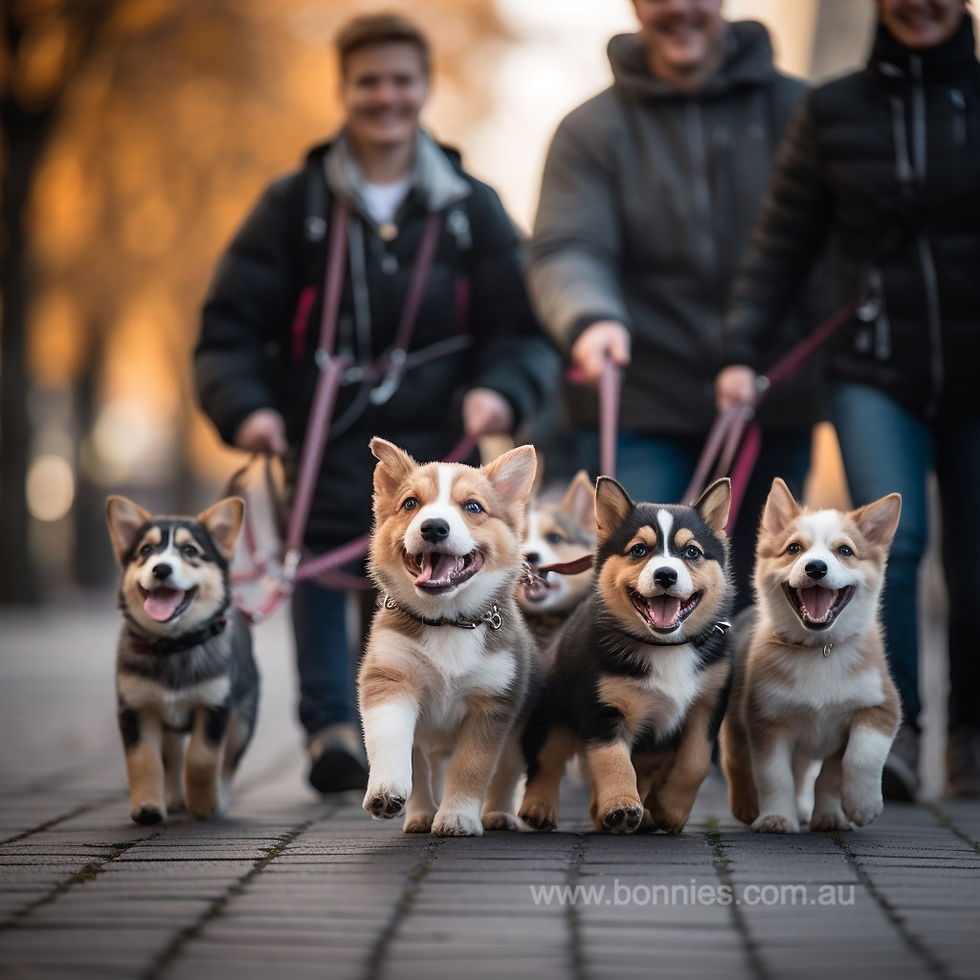Puppies - Bonding and Health
- Christian Bonney

- Jun 3, 2020
- 3 min read
Updated: Aug 29, 2023
When do I train my puppy? What age should I start? What are the risks? What are the upsides and downsides? Do you have a million other questions?
Yes? We get it! Puppies - Bonding and Health are important subjects when it comes to your puppy and dog.
The truth is that by asking these questions, you are off to a great start.
This dog blog article aims to answer questions about your puppy's early life, specifically in regards to your 'Puppies - Bonding and Health' within the family. However, talking about these often leads to more questions arising, so don't worry! You are not alone! If you can get yourself along to training, bring all of these extra questions with you, that way, you get the most out of your training!
Health:
First thing first, the health of your new puppy. When you pick up your puppy, the breeder, shelter or other registered puppy suppliers should be able to provide information on their feeding, sleeping, grooming and immunisation requirements. If you have your puppy and are not sure about any of these things, ask your vet.
"I've been told not to train my puppy until they have had all of their vaccinations. How do I socialise or train my puppy in the meantime?"
The most important thing in these situations is listening to the advice of people who are themselves informed; this includes vets and professional trainers.
Remember that bad habits are learned just as easily as good habits. A puppy is in the primary learning portion of its life between 8 and 16 weeks old. This is known as their imprint period.
At Bonnie's, our answer to this question is generally the following; We believe that the risk-reward factor leans toward starting training early, in controlled, safe environments rather than waiting too long and losing the ability to train them in their "Imprint" period.
However, it is important to remember that even after 47 years in business, with no problems with sickness in any puppies that have attended our school, there is always a tiny chance that even after all of our precautions are taken, a puppy might get sick.
Precautions that you yourself can take to ensure that your puppy is safe include: - Not taking them to public parks
- Not taking them to dog parks
- Limiting contact with older dogs
- Following Veterinary Advice
If you are concerned about doing group classes, private 1-1 training may be the best option for you. It will allow you to set up your home and establish your routines in the best way to help your puppy succeed and become the perfect family pet. If you would like some private training, go to our website's homepage and scroll down, you will see our options for private training right there for you!
Bonding:
When you pick up your puppy, your bonding and, therefore, training begins. Use soft hands with gentle pats and calm words. Calming our puppy instils a sense of relaxation and eliminates stress in our new friend. Children are often very excited to get their new puppy and become overexcited and animated. If you have children, try and teach your kids to be as calm and relaxed as possible when they meet the puppy (You could turn this into a challenge for them). It is also important for everyone in the family to have a lot of fun with the puppy, but at the appropriate times.
Picking up and holding a puppy is very common; however, try not to pick them up too much when they are younger as they may start to develop some separation anxiety or dependency problems as they grow older. Instead, try to get them used to walking comfortably on a very loose lead. As the puppy starts to mature a little more, play can become more energetic, and you can start playing new games.
Summary:
Puppy school is half about the puppy and half about the family and their understanding of the new addition to the home. Puppy school is about bringing the family and the puppy to an excellent understanding of each other to maximise everyone's ability to learn, including your four-legged friend. A puppies imprint period is between 8 and 16 weeks of age, so Bonnies recommends finding a reputable school or safe place to start training early, rather than waiting until it's too late.
Don’t be afraid to ask your puppy trainer or vet heaps of questions so you can choose to go to the best place possible. As trainers, we understand that you have a million more questions, at least. So feel free to give us a call on 0434067536 or book a session so that we can answer all the rest of them!
Thank you for taking the time to read this, and we hope it helps!
Give your dog a pat from us! Peter Bonney Bonnies Dog Obedience and Puppy School Director and Trainer





Comments